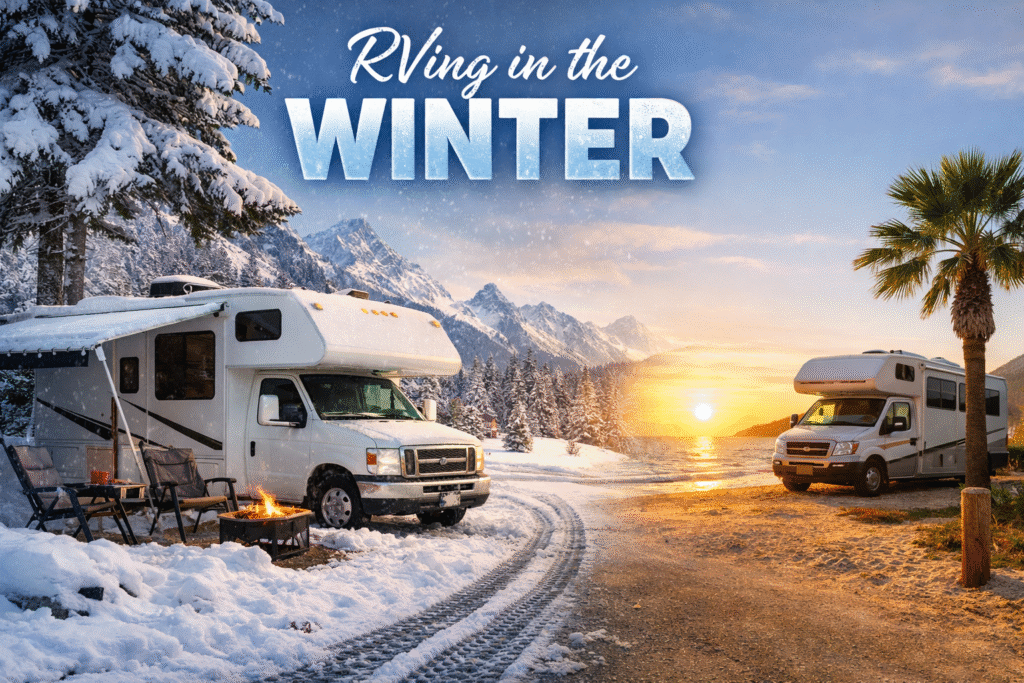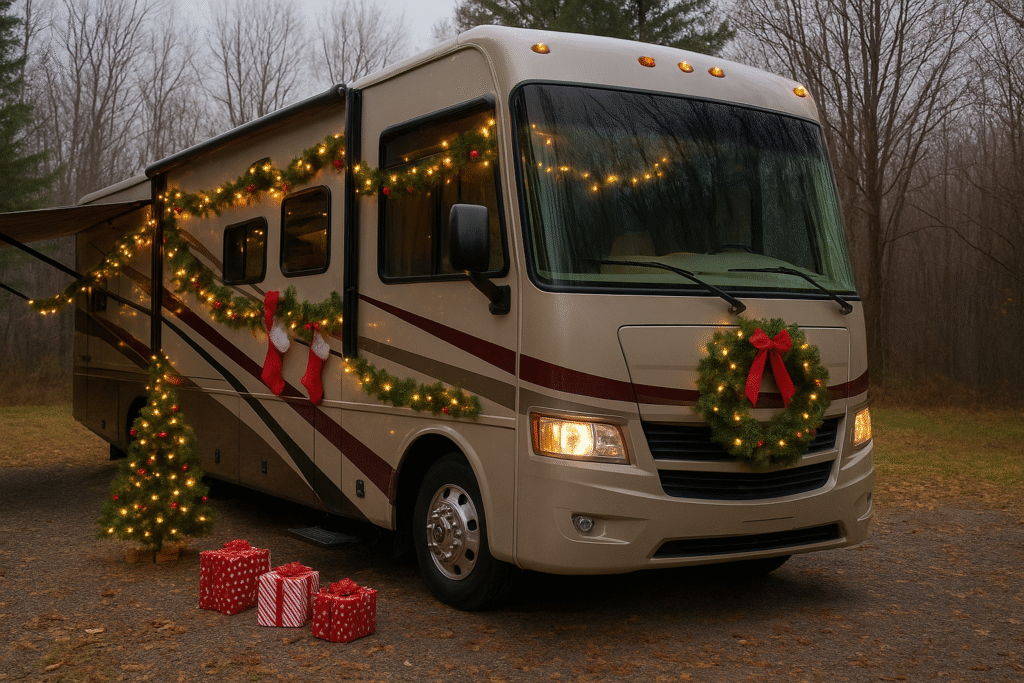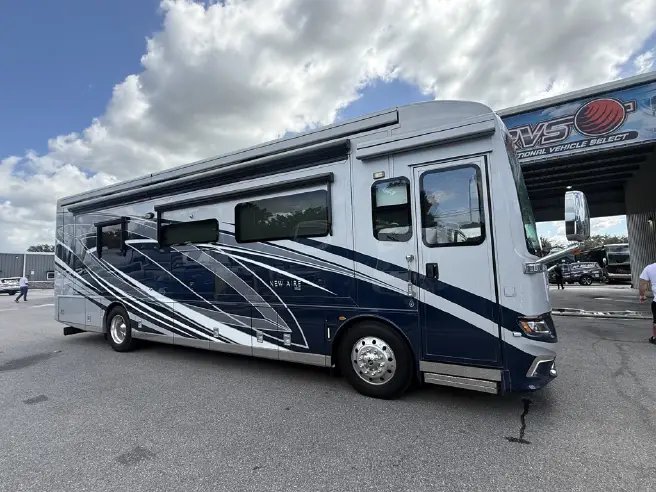Driving at night can be a challenge for even the most experienced of car and truck drivers. There’s the glare of oncoming vehicles’ headlights to contend with, plus the cloak of darkness that makes it difficult to see and gauge distance. Not to mention the risk of encountering (and hitting) creatures such as deer and raccoons.
Now add driving an RV to that scenario. Things start to look even more challenging, don’t they?
It’s for this reason that many RV owners avoid driving at night. Plus, it’s commonly known that getting to your chosen campground or site for the night before the sun dips below the horizon is just smart AND demonstrates that you are a campground etiquette master. So why would you even risk driving after nightfall?
Pros of Driving an RV at Night
Believe it or not, there are some advantages to driving your RV at night, including:
- Less traffic — You can be king or queen of the road in your rig if you drive at night. With fewer drivers on the roadways, there’s a lower chance that you’ll collide with another vehicle while changing lanes or entering or exiting a highway.
- Less mayhem — If you have kids, traveling during the day with the family can be downright hectic, on top of the busyness on the roads. But at night, when most little ones have calmed down and are sleeping, you can have the peace and quiet you need to focus solely on the road and navigating your rig.
- Less wind — We experience more wind during the day because as the sun heats the earth, the air at different levels of the atmosphere mix and can be felt as wind on the ground level. But after sunset, the air closest to the ground cools off and becomes more dense than warm air, so atmospheric mixing is less prevalent. This means in most cases, you won’t have to deal with heavy winds affecting your RV at night.
Cons of Driving an RV at Night
Along with the glare, difficulty seeing, and the potential to hit unsuspecting animals, driving at night also has the following disadvantages:
- It’s harder to do if your RV is large — Many folks say that they feel more comfortable driving smaller RVs at night, but when your rig is longer than 30 or so feet, it can be extra difficult. Navigating a lengthy Class A or fifth wheel at night requires just as much if not more attention paid while driving at night compared to daytime driving.
- The possibility of breaking down at night — Getting help when you break down in your RV is hard enough to do during the daytime. But if you breakdown at night, finding assistance could be a bigger challenge—and you might wait a long time for help.
- Fighting off tiredness — Humans are wired to be awake and active during the day and sleep at night. So if you attempt to drive at night, you’ll have to combat fatigue. Take a nap before night driving, keep the interior temperature cool, have brain-power snacks on hand, and have a playlist cued up to keep you alert and help you combat fatigue.
Are you a nighttime RV driver? What steps do you take to ensure a safe journey? Let us know in the comments or contact us today!




